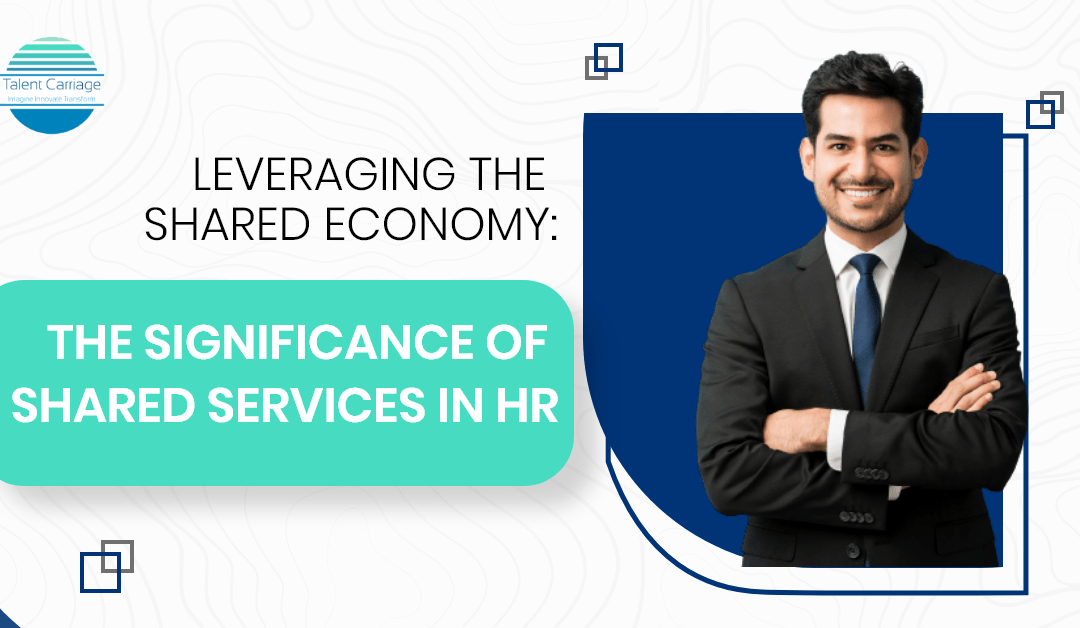Leveraging the Shared Economy: The Significance of Shared Services in HR
In today’s fast-changing landscape of business, the shared economy has emerged as a key driving force, redefining companies and challenging traditional business models which are slow to respond to the speed of business. As companies strive to optimize resources, improve efficiencies and improve end-user experience, the concept of shared services has gained prominence in all areas of HR, supply chain, Finance & Accounts, Legal Services, IT Services, and Marketing Services. This article specifically delves into the significance of shared services in HR within the context of the shared economy of today’s business world.
Shared services, in the context of HR, refers to the centralization and consolidation of HR functions and processes across an organization. This approach allows companies to pool resources and expertise resulting in streamlined operations, cost savings, and improved service delivery. Since the shared economy encourages flexibility, collaboration, and efficient resource allocation, integrating shared services into HR strategies yields several key benefits.
- Cost Efficiency: The shared economy emphasizes resource optimization, and shared services align perfectly with this principle. By consolidating HR functions such as payroll, benefits administration, employee data administration, analytics, and exit management, organizations can achieve economies of scale and reduce operational costs. This financial advantage allows companies to reallocate resources to more strategic initiatives and investments.
- Specialization and Expertise: Shared services facilitate the deployment of specialized HR teams that are well-equipped to handle specific functions. This specialization leads to enhanced expertise, improved service quality, and a more strategic approach to HR functions. Whether it’s managing complex compensation structures or navigating intricate compliance requirements, dedicated teams within shared services can provide valuable insights and solutions.
- Agility and Flexibility: In a shared economy, agility is key. Shared services enable HR departments to quickly adapt to changing business needs by reallocating resources and adjusting team compositions. This flexibility is especially crucial in today’s dynamic work environment, where organizations often need to scale up or down rapidly in response to market shifts.
- Enhanced Employee Experience: The shared economy has placed a premium on personalized experiences, and shared services can contribute to an improved employee experience. Centralized services ensure consistent and standardized processes, reducing discrepancies and enhancing overall employee satisfaction.
- Technology Integration: The shared economy thrives on technological innovation, and shared services in HR can leverage advanced HR management systems and tools. These technologies facilitate seamless communication, data analysis, and reporting, enabling HR professionals to make data-driven decisions and enhance strategic planning.
As the shared economy continues to shape the future of work, the significance of shared services in HR cannot be overstated. Organizations that embrace this approach stand to benefit from increased efficiency, reduced costs, and a more agile workforce. By harnessing the power of shared services within the context of the shared economy, HR departments can play a pivotal role in driving their organizations toward success in this transformative era

